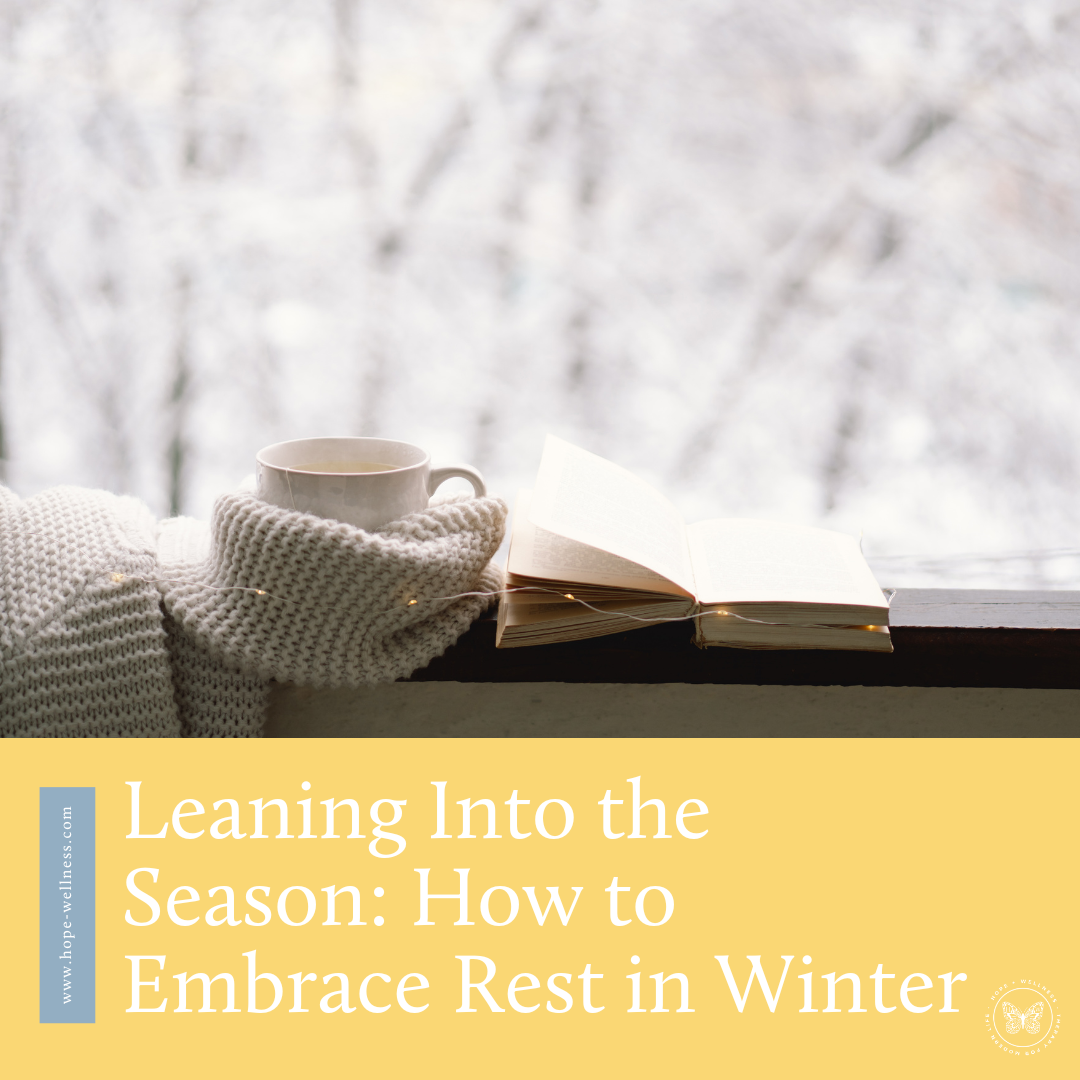
Hope +Wellness Blog
little snippets of advice for everyday challenges many people share

Creating a Self-Care Toolkit for Mental Wellness in 2025
We put together this toolkit to be there to pick up the slack, and be the supportive friend you can turn to when 2025 starts to be just a little too much to manage on your own. This toolkit isn’t about meeting external expectations or achieving someone else’s version of wellness. It’s about creating the practice of returning to tools and relying on support that honor your unique needs, values, and experiences.

Leaning Into the Season: How to Embrace Rest in Winter
What if winter isn’t a time to push through, but an invitation to slow down? Even if we can’t get there fully, like bears hibernating until spring, can we meet our need for slowness and rest this season halfway? Can we learn to welcome a season of rest? Embracing rest during this season can be a radical act of self-care and healing.

4 Ways to Accept a Slower Pace in the Winter Season
Accepting a slower pace in the winter might seem impossible, but slowing down for the season can make a huge difference in your mental health.
Hope+Wellness is a mental health practice specializing in the treatment of depression, mood, stress, and anxiety in kids, teens, and adults. This is a blog about living well and finding meaning and purpose in the face of difficult challenges. This is a blog about finding hope.
Archive
- ACT
- ADHD
- Acceptance
- Anxiety
- Authenticity
- Belonging
- Bipolar
- CBT
- Calming
- Change
- Chronic Illness
- Chronic Pain
- Communication
- Community
- Coping Skills
- DBT
- Dating
- Depression
- EMDR
- Emotions
- Entrepreneurs
- Friendship
- Gratitude
- Grief
- Health Psychology
- Hope
- Inspiration
- Intimacy
- Intuition
- Joy
- Letting Go
- Love
- Manic Depression
- Mindfulness
- Miscarriage
- OCD
- Parenting
- Personal Growth
- Positive Vibes
- Quotes
- Relationships
- Resources
- Self-Compassion
- Self-Reflection
- Services
- Sleep
- Spirituality
- Stress Management
- Stress Relief
- Suffering